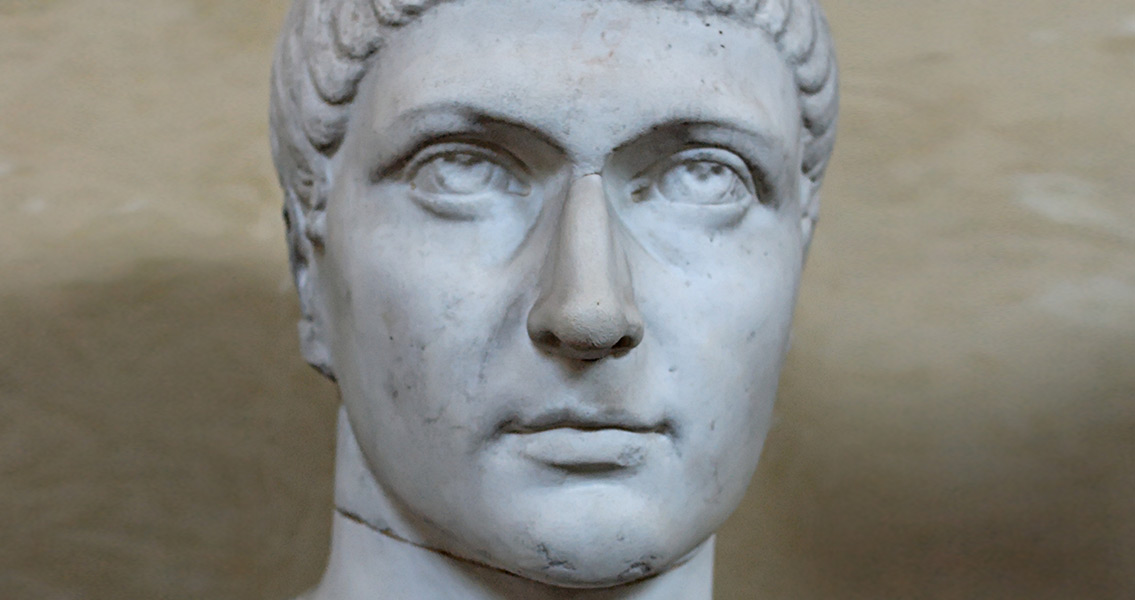<![CDATA[On the eve of a crucial battle which cemented his rise to power as the Emperor of the Western Roman Empire, Constantine supposedly had a vision which played a key role in his conversion to Christianity. Constantine became the first Roman emperor to adhere to Christianity, and issued edicts which protected Christians within the Roman Empire, setting a marked contrast with the centuries of persecution followers of the religion had received up until that point. The significance of this conversion on European history is clear - allowing Christianity to flourish in the Roman Empire would go on to shape political, cultural and social history for centuries, with the effects still apparent to this day. The vision, which was so crucial to Constantine's adherence to Christianity, came on 27th October, 312 CE, the day before the Battle of the Milvian Bridge, a key victory in his ascension to power. Several different accounts exist of the vision which changed Constantine's life. Eusebius Pamphilus, an apologist and biographer of Constantine, described Constantine and his army seeing an image of a burning cross in the afternoon sky, with the accompanying inscription "In this sign, conquer." A slightly different description of the circumstances behind Constantine's vision was offered by Lactantius, a Christian writing several years after the Battle of the Milvian Bridge. "Constantine was directed in a dream to cause the heavenly sign to be delineated on the shields of his soldiers, and so to proceed to battle. He did as he had been commanded, and he marked on their shields the letter Χ, with a perpendicular line drawn through it and turned round thus at the top, being the cipher of Christ. Having this sign (ΧР), his troops stood to arms." Whatever the truth in the various accounts of the vision, the importance lies in the fact that it has been accepted into the narrative of the Battle of the Milvian Bridge, a battle which Constantine's forces went on to win the next day. The forces of Constantine's rival for the imperial throne, Maxentius, severely out numbered Constantine's but were nonetheless forced into a retreat across the Tiber River. The only option available to them was the Milvian Bridge, one too narrow to accommodate Maxentius' troops. In the chaos, many of his soldiers drowned in the river or were trampled on the bridge. The defeat was a dramatic one, which saw Constantine ride into Rome with Maxentius' head on a stick. Of course, Constantine wasn't the first leader of the ancient world to claim supernatural intervention had played a role in a military victory. The significance lies in his actions afterward, which drastially altered the standing of Christianity in Roman society. The Edict of Milan in 313 CE, the year following the Battle of the Milvian Bridge, legalised Christianity and allowed freedom of worship throughout the empire. The year after reuniting the Eastern and Western Roman Empires under his leadership, Constantine summoned church leaders to the Council of Nicea in 325 CE. A key outcome of this gathering was the issuing of the Nicene Creed, which declared Jesus Christ to have been a supernatural being and lay the foundation for the modern doctrine of Christianity. Finally, shortly before his death, Constantine himself converted to Christianity, and was baptised. Constantine's reign marked the beginnings of the transition to Christianity in Europe, laying the foundations for the primacy of the religion on the continent throughout the Middle Ages and early-Modern period. Whatever the details of the vision he claimed to experience on 27th October, 312 CE, it played a key role in justifying his move to preserve Christianity. ]]>
Constantine Receives Divine Vision
